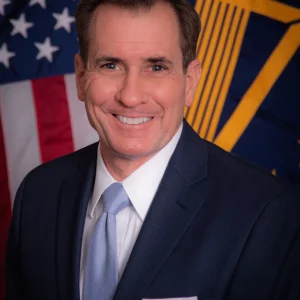Bangladesh urges EU to take steps to repatriate displaced Rohingya
DHAKA, Bangladesh (AA) – Bangladeshi Prime Minister Sheikh Hasina on Thursday urged the European Union (EU) to take steps to repatriate displaced Rohingya who are currently taking shelter in the country’s southeast coastal district of Cox’s Bazar.
Over 1.2 million persecuted Rohingya are currently housed in Bangladesh on a large hilly forest site in Cox’s Bazar, after fleeing a brutal military crackdown in Myanmar in August 2017.
She emphasized the Rohingya repatriation at a meeting with a five-member EU team led by Commissioner for Home Affairs YIva Johansson at her Dhaka office.
The meeting also discussed the issue of climate change, according to Prime Minister’s Press Secretary Ihsanul Karim.
“The primer briefed the EU delegation that the huge number of forcefully displaced Rohingya from Myanmar has been a challenge for Bangladesh to deal with as the number of refugees increases every day as new children are born,” the official said.
The EU delegation leader pledged that the EU will continue to support Bangladesh on the Rohingya issue.
The issue of Bangladeshi migrants risking their lives to traverse the Mediterranean Sea was also discussed.
The prime minister also expressed her disappointment with affluent countries’ failure to offer funds for climate-vulnerable countries like Bangladesh.
Hasina informed the EU team that “rich countries, which are responsible for global warming, have not delivered their pledged money to countries most vulnerable to climate change’s adverse impacts. Rich countries have failed to keep their pledges.”
EU’s $3M grant for Rohingya
Earlier, the visiting EU team said in a meeting with State Minister for Disaster Management and Relief Md. Enamur Rahman that it would provide €3 million to Rohingya refugees on the remote island of Bhasan Char, according to a ministry statement.
The EU delegation landed in Dhaka on Thursday for a two-day visit.
The minister welcomed the donation and stated that the government is working hard to provide all forms of humanitarian assistance to the Rohingya.
The money should be utilized to educate Rohingya children until their peaceful repatriation, Chairperson of the European Rohingya Council Ambia Parveen told Anadolu Agency by phone from Switzerland.
Meanwhile, UN Special Rapporteur on trafficking in persons and human rights expert, Siobhan Mullally, said “the situation in the Rohingya camps, with no access to employment or formal education and training, and restrictions on movement, led to . . . trafficking for purposes of child marriage, sexual exploitation and forced labour.”
She said this in a written statement issued on Wednesday night, following her 10-day official visit to the country, during which she also visited a Rohingya camp.
“For Rohingya refugees who are victims of trafficking, the capacity to provide assistance and protection within the camps is limited and must be expanded,” she added.








